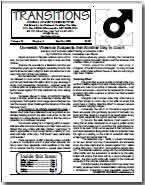Australia will be the first country to offer males free access to the cervical cancer vaccine Gardasil, after the federal government announced it would spend $21 million to immunise nearly 900,000 boys across four years.
The new program, which will start next year, will expand the existing program that provides Gardasil to teenage girls, offering the two-dose vaccine to boys aged 12-13. For two years there will also be a catch-up program for boys in Year 9.
The decision has been hailed by public health and cancer experts, as well as by the vaccine’s inventor, former Australian of the Year Ian Frazer. Professor Frazer said the decision, announced by federal Health Minister Tanya Plibersek in Brisbane yesterday, was “great news” and would not only further limit the spread of human papillomavirus (HPV), which causes cervical cancer in women, but also directly benefit boys and men.
Ms Plibersek said more than 65 million doses of Gardasil had been given to women worldwide since its invention, and “we know that it’s a safe vaccine”. “This Australian innovation will protect our young men and our young women from developing cancers that come from HPV,” Ms Plibersek said yesterday. “Every parent wants their child to have the maximum opportunity to lead a healthy life and this improves the protection we have against HPV and against the related cancers that come from it.”
While two of the four strains of HPV the vaccine protects against, 16 and 18, are thought to cause more than 70 per cent of cervical cancer cases, they are also implicated in the development of various other cancers known to affect men, which include cancers of the anus, penis, mouth and throat.
The other strains, 6 and 11, are also responsible for genital warts, the rate of which has already more than halved in Australia since Gardasil was first offered free to girls and women in 2007.
Professor Frazer, who is now chief executive and director of research at the Translational Research Institute in Brisbane, said his three sons had all been immunised with Gardasil in 2006, at the ages of 24, 22 and 20. But as HPV is transmitted sexually, and because Gardasil can protect against HPV only before infection occurs, the vaccine is recommended to be given to both girls and boys before the age when sexual activity is likely to start.
“I am pleased to see Australia is leading the way with this important public health measure,” Professor Frazer said.
“They are desperately keen to try to do this in the US because the uptake among girls has been much lower, and giving it to boys as well is the best protection.
“This will be a move that changes the way other countries think about these vaccines.”
The decision to fund the vaccine for boys follows a recommendation last December by the federal government’s pharmaceutical benefits advisory committee, despite only months earlier rejecting the idea on the basis of “unacceptably high and uncertain cost-effectiveness”.
The recommendation was changed in December after CSL, the Melbourne-based drug giant that markets Gardasil in Australia, resubmitted its application with a reduced price and a reanalysis of earlier data that suggested vaccinating males could prevent up to 91 per cent of cases of intraepithelial neoplasia, which there is evidence to suggest can develop into anal cancer.
Much of this evidence comes from gay and bisexual men, but the PBAC accepted the vaccine was likely to be just as effective in the general male population.
Cancer Council Australia chief executive Ian Olver said HPV was responsible for a rising number of head and neck cancers,and this benefit “would be the most dramatic”.
But some immunisation experts say health authorities may struggle to achieve a high uptake with the new boys’ program, given that Gardasil was known as the “cervical cancer vaccine” and as some of the other benefits were more an issue for gay men.
Perth mother-of-two Vicki Brown told The Australian yesterday she was excited that her son Harrison, 10, would be among the first schoolboys in the world to receive the Gardasil vaccine. Ms Brown said she was firmly in favour of a vaccine that reduced the chances of some forms of cancer later in life; her husband Richard was a fit and healthy non-smoker when he was diagnosed with the aggressive throat cancer that killed him six months later.
“The experience was horrible in every way — Harrison was only two when his father died,” she said. “If anything can be done to reduce the number of people who have to go through that pain, and the health system, I say do it.”
ADDITIONAL REPORTING: PAIGE TAYLOR
Source: Boys first in Gardasil cancer vaccine rollout (http://www.theaustralian.com.au/national-affairs/health/boys-first-in-cancer-vaccine-rollout/story-fn59nokw-1226424883455)


